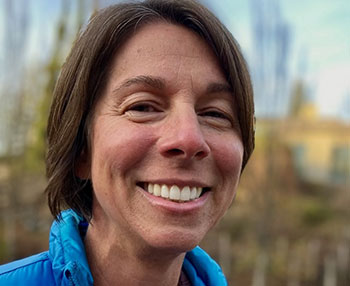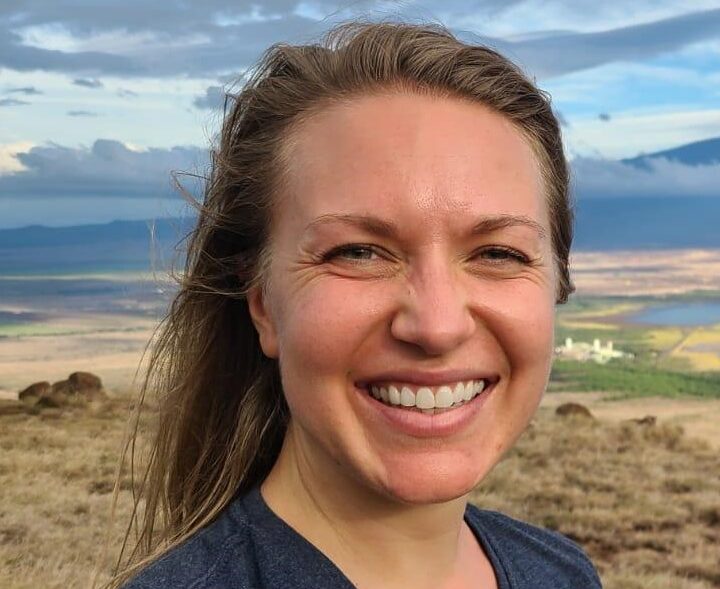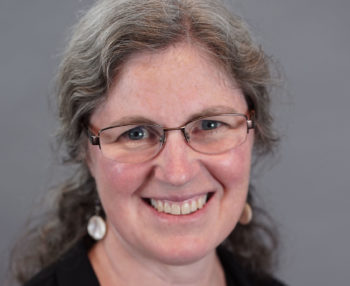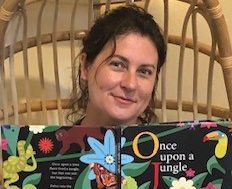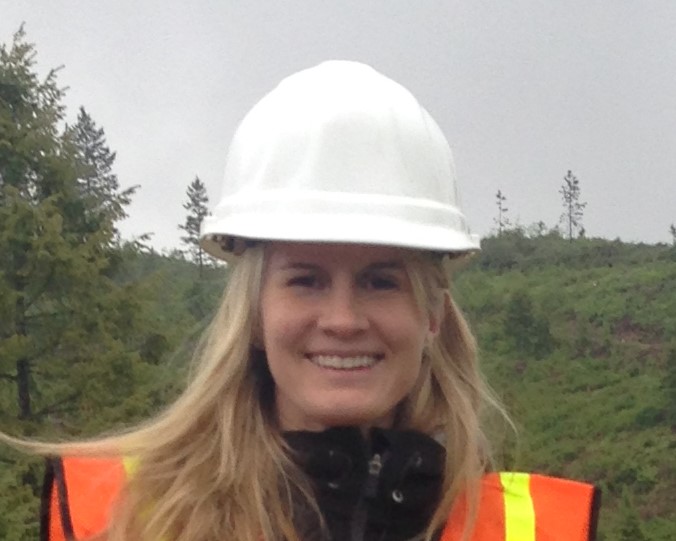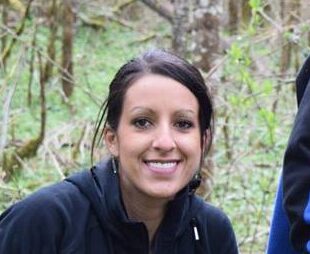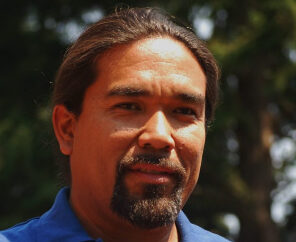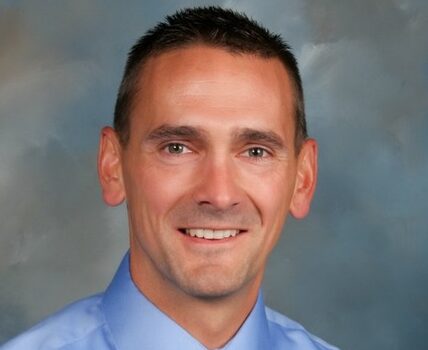PEI is a leader in promoting scientific literacy and civic engagement by empowering people to make balanced, well-informed decisions for just and sustainable communities.

Who We Are
Vision, Mission & Values
Vision
Mission
PEI supports educators by specializing in professional learning and FieldSTEM implementation.
Values
|
1. Equity |
Equitable FieldSTEM learning that is culturally relevant for each student. |
|
|
|
|
2. Collaboration, Diversity and Inclusion |
Inclusive and collaborative education that considers all voices, including historically underrepresented populations, when making decisions and designing solutions to strengthen community. |
|
|
|
|
3. Integrity |
A cohesive education system that utilizes reliable and trusted scientific resources to build relationships that inspire trust. |
|
|
|
|
4. Authenticity |
Education that engages students in locally relevant, economic, social, and environmental questions, problems, issues, and opportunities. To ensure authenticity, this work is conducted in partnership with agencies, organizations and businesses in the community and brings student voice and civic participation into age-appropriate community decision making. |
|
|
|
|
5. Stewardship |
Education that encourages students to actively take responsibility for the vitality and sustainability of the environmental, economic, and social systems of their communities. |
|
|
|
| 6. Creativity | Inspiring innovative, socially just, science-based thinking |
PEI’s Commitment to Diversity, Equity, Inclusion and Justice (DEIJ)
PEI has long been dedicated to ensuring equitable access to science education connected to civic participation for all students. That dedication required out of the box thinking, modifying existing models of curriculum development and distribution, and advocating for student-centered, community-focused learning that both engaged learners and met education standards. PEI created frameworks and guides to support educators, schools, and districts to build asset maps for meaningful applied learning in their region. We know that students engage when classrooms connect to field-based learning and when students are exposed to the myriad of ways that personal and collective decisions impact the ecological, economical, and socio-cultural health in the places they live. Communities are stronger and healthier when students create and help implement solutions to steward the overall health and well-being of the community, which in turn benefits the planet they care about. PEI’s purpose has always been to empower educators to advance scientific literacy by promoting equitable, outdoor, locally relevant, integrated, career connected, real-world science.
Education is a complex process which in praxis must be culturally relevant for the learner. As historically underserved voices are increasingly heard, best educational practice is informed. It is evident to the PEI staff and Board of Directors that the work we do to increase equity in science, is simply not enough. We need to do more to help bridge the opportunity gap, to ensure that our frameworks, instructional guides, and professional learning experiences are supporting the most underrepresented people in each community. PEI’s model will be most effective when, for each community, marginalized populations are part of the leadership and implementation team.
Some diversity, equity, inclusion and justice (DEIJ) actions accomplished at PEI include updating the hiring process, updating our organizing language (vision, mission, values), and establishing a formal DEIJ committee. The committee purpose is to hold regular meetings to move forward the DEIJ work, to formalize and demonstrate our intentions of becoming an anti-racist organization, to actively challenge racism and the policies and practices that uphold it. The overall goal of the committee is to ensure that DEIJ principles are embedded throughout PEI’s policies and practices, and to further synthesize, operationalize, and facilitate the work among staff, board, partners, and participants. The committee meets regularly and includes members of the executive staff, program staff, and a board liaison. The committee intends to expand participation to partners and community members in the future to ensure that their voices and perspectives are included.
The committee’s first tasks were to create a foundation for DEIJ work. Group agreements were established to support authentic and meaningful participation between committee members who represented diverse perspectives and voices coming together to create intentional change toward becoming an anti-racist organization. The committee then created relatable and specific definitions for the foundation terms, diversity, equity, inclusion and justice, to ensure they were unified in their next steps. Next, committee members will create a working draft of a DEIJ Action Plan with a list of goals and actions to support the process of becoming an anti-racist organization.
The DEIJ Action Plan will encompass all areas of the organizations policies and practices including Organization-wide Policies & Systems, Board Involvement, Employee Development, Community and Partner Engagement, Resource Development, and Program Operations. Individual committee members will facilitate the ongoing actions necessary to ensure DEIJ goals are met.
The committee will regularly report updates and actions to staff and board and seek input for next steps, ensuring all voices and perspectives are included in the work. Participation in the committee is always open to any staff or board members.
History & Awards
History
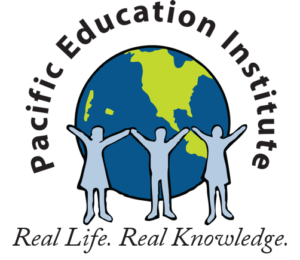
The Pacific Education Institute (PEI) was founded in 2003 by a consortium of leaders from the Washington Forest Protection Association (WFPA) , Washington Department of Fish and Wildlife (WDFW), Office of the Superintendent of Public Instruction (OSPI), the Association of Washington School Principals (AWSP), Washington Association of School Administrators (WASA), and the Washington State School Directors Association (WSSDA). Recognizing a lack of real-world, career-connected, locally relevant, outdoor-based education in the state, they established teaching frameworks to guide this kind of education grounded in Washington State’s educational goals, the Common Core State Standards (CCSS) and Next Generation Science Standards (NGSS).
We have a commitment to advance science literacy and deepen student engagement by empowering educators to take students outdoors to learn integrated real-world science. Strong proponents of integrated instruction, our frameworks fuse STEM (science, technology, engineering and math) education with language arts, social studies and art, and apply it in contexts that matter to students and their communities. We call this teaching and learning model FieldSTEM®. When taught with fidelity, FieldSTEM allows students to approach their learning from many entry points to weigh the complexity of social, ecological, and economic systems and the interplay between society and the natural world. Having students engaged in locally-relevant, environmental challenges and stewardship activities as a cornerstone of their STEM education exposes them to the complex decision-making that is required of our democratic process.
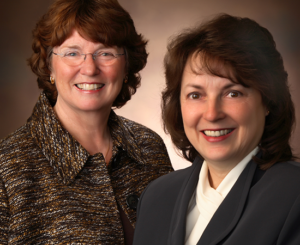
We have conducted research to demonstrate increased student engagement and achievement as a result of integrated learning using the environment as context. Our FieldSTEM Model is now used statewide to meet NGSS in K-12 science education standards.
Long-time environmental and natural resource educators, founding Executive Directors Lynne Ferguson (2003-2010) and Dr. Margaret Tudor, Ph.D. (2010-2017) laid the foundation for a system that would effectively infuse the study of environmental science, natural resources and agriculture into civic and STEM education. Having served for years as leaders at WFPA and WDFW, respectively, they also served as the statewide coordinators of K-12 environmental science programs Project Wild®, Project WET®, NatureMapping®, and Project Learning Tree®. In 2016, long-time educational leader, environmental educator and STEM curriculum and standards expert, Kathryn Kurtz, became the 3rd Executive Director of PEI and currently works with staff to deliver high-impact professional learning for Washington State teachers and administrators, and with policy-makers to ensure environmentally based, locally relevant, career connected STEM education is a priority.
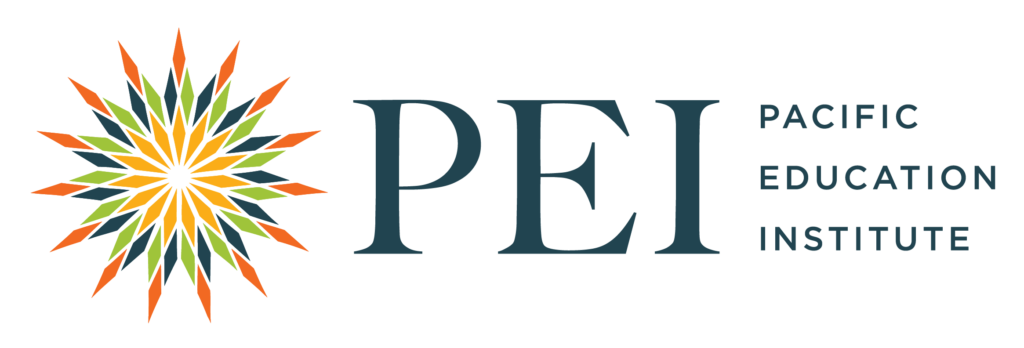
Kathryn is a member of the Washington STEM Education Innovation Alliance and sits on the LASER Advisory Council, the Washington STEM Network, E3, and the National Heritage Advisory Council. While a new logo in 2017 updated PEI’s look, our mission and dedication to high quality, field-based civic and STEM education remains the same.
Awards
PEI continually strives for excellence in the environmental education and education fields. Our work has been acknowledged by varied and respected entities. We are proud to have received the following commendations:
Prior to PEI’s formal organization, the founding PEI partners were recognized by the American Forest Foundation’s National Project Learning Tree Program for leading an Outstanding Program and consistently providing Excellence in Environmental Education through Project Learning Tree.
Prior to PEI’s formal organization, the founding PEI partners received an award for Outstanding Performance Assessment Product from the Washington Education Research Association (WERA).
PEI received a Career and Technical Education Award: Promising Practices Partnerships, New Market Skills Center.
The Cle-Elum Roslyn School District awarded PEI with a Certificate of Program Recognition for excellent service to students and staff and for ongoing curriculum and instructional support.
Dr Margaret Tudor, PEI’s Co-Executive Director received a Certificate of Appreciation from the Office of the Superintendent of Public Instruction (OSPI) recognizing her invaluable contribution to the 2008 Science Standards Revision Team (SSRT).
Dr. Margaret Tudor, PEI’s Co-Executive Director in 2009, was honored through Senate Resolution 8637 recognizing her contributions to encourage schools to use the outdoors as laboratories to study science.
Co-Founder Lynne Ferguson honored with a Governors Accommodation Award from the State of Washington.
PEI received the 2011 E3 Washington Award for Excellence in the Nonprofit Organizational category form E3/ Environmental Education Association of Washington.
The Western Governors’ Association endorsed the PEI Guides, developed in partnership with the Association of Fish and Wildlife Agencies, as educational tools for conservation education to shape students’ environmental literacy, stewardship and outdoor skills in their “Get Out West” Report to the Governors.
The Puget Sound Partnership awarded PEI a Certificate of Recognition for leadership in advancing Puget Sound Curricula in school districts throughout Puget Sound.
The Secretary of Commerce of the United States Department of Commerce awarded Dr. Margaret Tudor, PEI’s Co-Executive Director with the Coastal America Partnership Award, recognizing PEI’s partnership to make a significant contribution toward the restoration and protection of the coastal environment.
PEI received an award from the Capitol Land Trust for leadership in providing K-12 students in Washington with meaningful learning opportunities with nature as the classroom, and developing the next generation of conservation leaders.
Dr. Margaret Tudor is honored with an award for her work with PEI and the Environmental Education Society in Pierce County.
The Audubon Society, Black Hills Chapter, honored Dr. Margaret Tudor with the Environmental Educator of the Year award for her years of dedication to environmental education and her work with the Pacific Education Institute.
The Puyallup Hatchery Program--PEI's partnership with Puyallup Historical Hatchery and the Puyallup School District--won the Pierce County Conservation District's Educator of the Year Award in 2017.
PEI named ClimeTime statewide lead by the Office of the Superintendent of Public Instruction.
PEI named Project WET and Project WILD statewide coordinator.
Staff
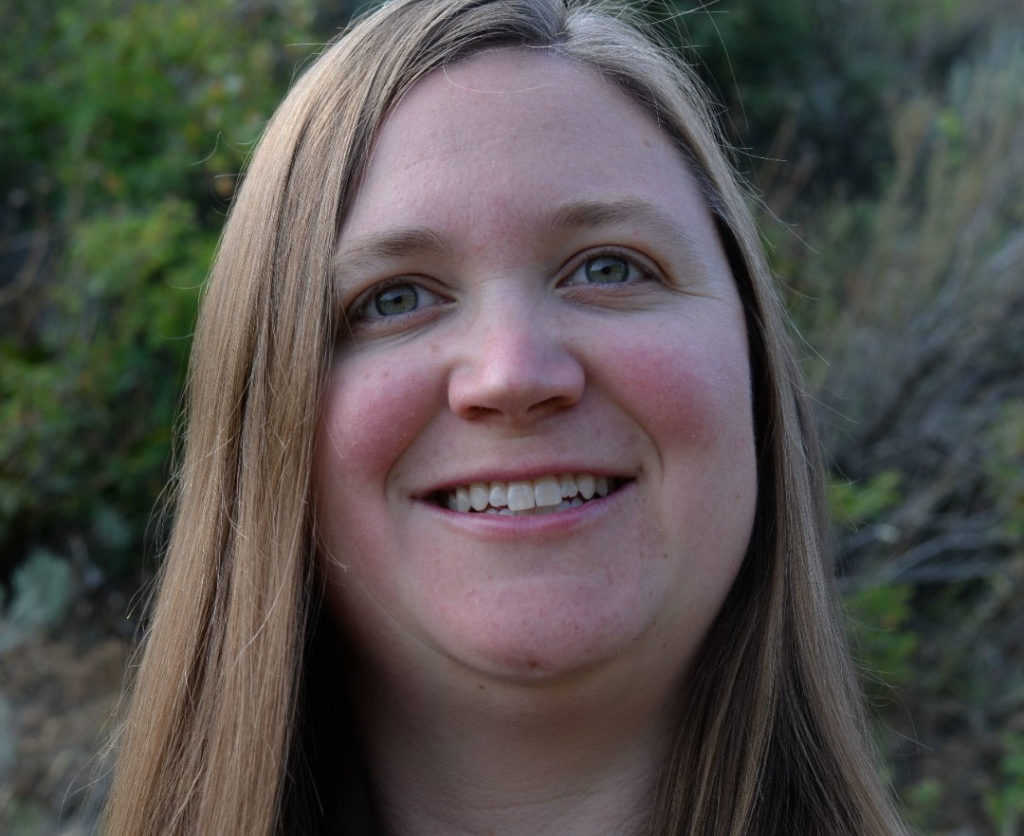
Megan Rivard (she/her)
Associate Director Columbia Basin & Coast Region
(253) 271-9546
[email protected]
Board

Erin Ewald – Finance Chair
Director of Regulatory & Environmental Compliance, Taylor Shellfish Farms

Clare Sobetski
Youth Education & Outreach Program Manager, Washington Department of Natural Resources
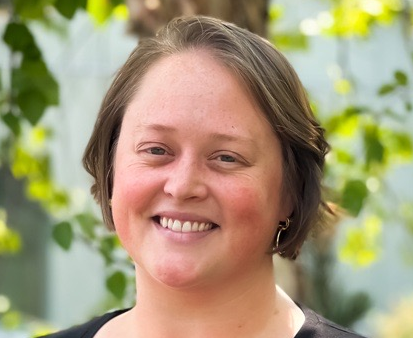
Lindsey Williams
Executive Director, Agriculture & Natural Resource Center for Excellence, Walla Walla Community College
Careers at PEI
Join Our Team
When available, internships and/or full- and part-time positions will be listed below. As we expand throughout the state, we are always looking for bright and dedicated individuals with a passion for science and education. If you think you would be a great fit for our organization and would like us to keep your résumé on file, please email a cover letter and résumé to [email protected].

